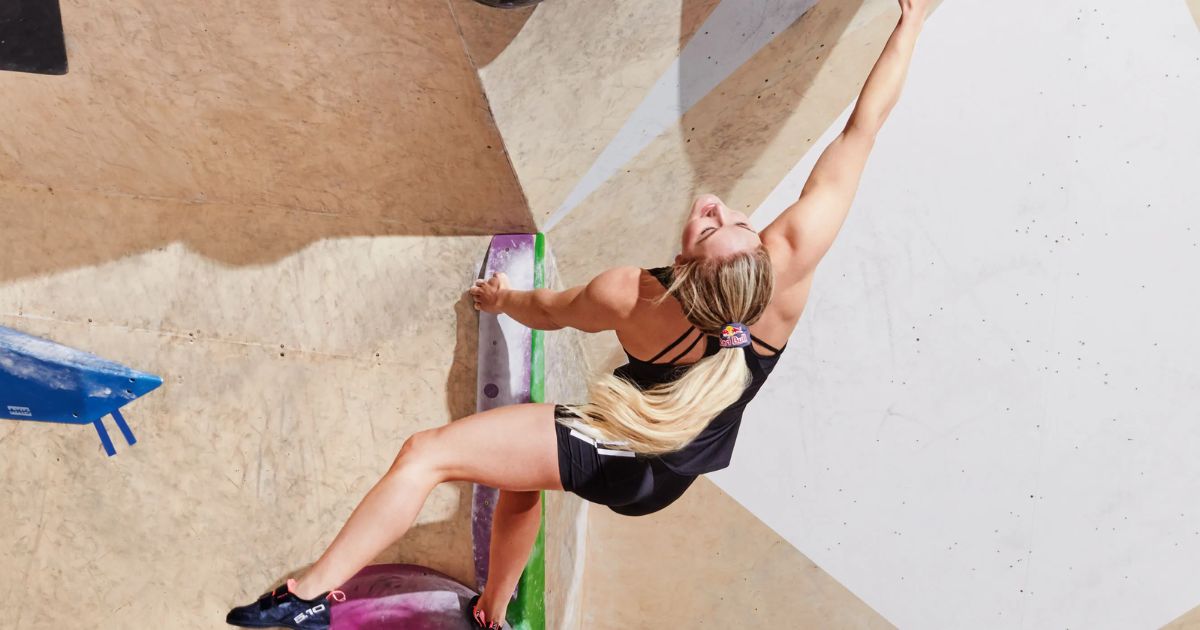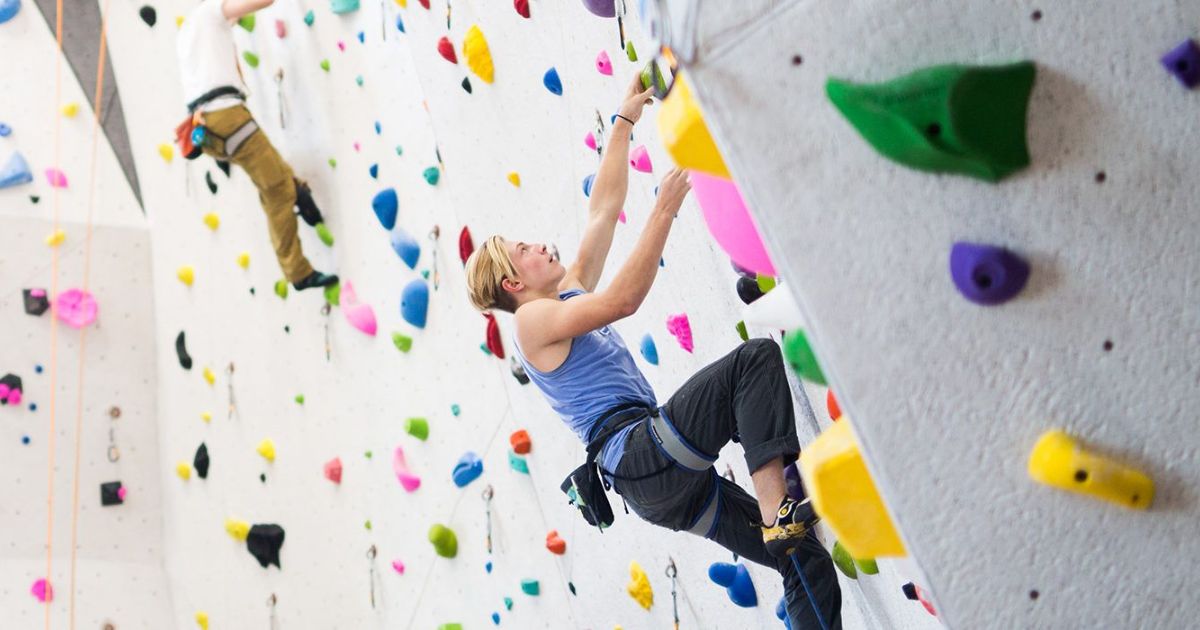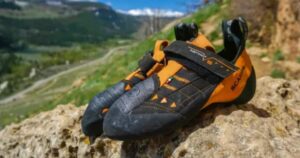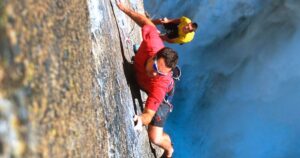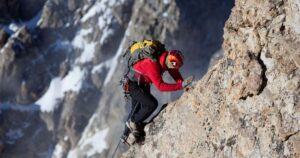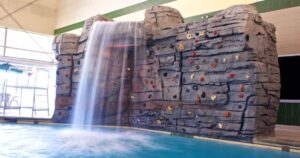Embark on a rock climbing adventure fueled by the perfect pre-climbing meal. Just as a sturdy rope supports a climber’s ascent, choosing the right nutrition can provide the necessary energy and strength to conquer the heights. This article unveils the secrets of what to eat before rock climbing, highlighting the importance of carbohydrates, protein, healthy fats, and hydration. Discover evidence-based tips and delectable snack ideas that will elevate your performance on the wall. Join the community of climbers who strive for greatness through nourishment.
Key Takeaways
- Timing is crucial for pre-climbing nutrition, with a balanced meal or snack containing carbohydrates, protein, and healthy fats recommended 1-2 hours before climbing.
- Carbohydrates are essential for fueling climbing, replenishing glycogen stores, and improving endurance and performance.
- Protein is necessary for muscle repair and growth, and consuming it within one hour of finishing climbing optimizes muscle recovery.
- Healthy fats provide sustained energy, reduce inflammation, and support cardiovascular health during rock climbing.
Importance of Pre-Climbing Nutrition
Proper nutrition before rock climbing is crucial for optimal performance and endurance. One way to enhance performance is by incorporating nutritional supplements into the pre-climbing routine. These supplements, such as protein powders, BCAAs (branched-chain amino acids), and creatine, can help boost energy levels, improve muscle recovery, and increase overall strength. However, it is important to use these supplements judiciously and consult with a healthcare professional or registered dietitian to ensure they align with individual needs and goals.
In addition to supplements, timing plays a key role in pre-climbing nutrition. It is recommended to consume a balanced meal or snack containing carbohydrates, protein, and healthy fats about 1-2 hours before a climbing session. This allows the body to digest and absorb the nutrients, providing a steady source of energy during the climb. Eating too close to the activity may lead to discomfort or hinder performance, while consuming too far in advance may result in decreased energy levels. Finding the optimal timing for each individual can help maximize performance and prevent any digestive issues during the climb.
Carbohydrates: The Fuel for Climbing
Carbohydrates serve as the primary source of fuel for rock climbing, providing the energy necessary to power your climb. Here are four reasons why carbohydrates are essential for fueling your climb:
- Quick energy: Carbohydrates are quickly broken down into glucose, which is used by the body as a readily available source of energy during exercise.
- Improved endurance: Consuming carbohydrates before climbing helps to replenish glycogen stores in the muscles, allowing for sustained energy levels and improved endurance.
- Enhanced performance: A diet rich in carbohydrates has been shown to improve performance in endurance activities, including climbing.
- Faster recovery: Carbohydrates also play a crucial role in post-climbing recovery by replenishing glycogen stores and aiding in muscle repair.
To optimize your climbing performance, make sure to include carbohydrates in your pre-climbing meal or snack. Choose complex carbohydrates like whole grains, fruits, and vegetables to provide sustained energy throughout your climb.
Protein: Building Blocks for Strength
Consuming an adequate amount of protein is essential for rock climbers to build strength and support muscle recovery, complementing the role of carbohydrates in fueling their climb. Protein is made up of amino acids, which are the building blocks of muscle. Including protein in your pre and post-climbing nutrition can provide the necessary nutrients for muscle repair and growth.
Here is a table outlining some protein-rich foods that climbers can incorporate into their diet:
| Protein-Rich Foods | Protein Content per 100g |
|---|---|
| Chicken breast | 31g |
| Greek yogurt | 10g |
| Quinoa | 14g |
| Eggs | 6g |
| Almonds | 21g |
Including a variety of protein sources in your diet can help meet your protein needs and support muscle recovery after climbing sessions. Aim to consume protein within one hour of finishing your climb to optimize muscle repair and growth. Remember, protein is just one piece of the puzzle, so make sure to also prioritize a balanced diet that includes carbohydrates and healthy fats.
Healthy Fats: Sustaining Energy on the Wall
To sustain energy and endurance while rock climbing, incorporating healthy fats into your diet is crucial. Healthy fats provide essential nutrients and can help fuel your body during intense physical activity. Here are four examples of healthy fats that can sustain your endurance on the wall:
- Avocados: Packed with monounsaturated fats, avocados provide a slow-release source of energy and can enhance endurance.
- Nuts and seeds: Almonds, walnuts, chia seeds, and flaxseeds are rich in omega-3 fatty acids, which can reduce inflammation and support cardiovascular health.
- Olive oil: This heart-healthy oil is high in monounsaturated fats and antioxidants, which can improve energy levels and enhance overall performance.
- Fatty fish: Salmon, mackerel, and trout are excellent sources of omega-3 fatty acids, which can reduce muscle soreness and improve recovery time.
Incorporating these healthy fats into your diet can help sustain your endurance and provide the essential nutrients needed for optimal performance on the rock wall.
Hydration: Essential for Peak Performance
To maintain optimal performance on the rock wall, it is crucial to prioritize hydration. Proper hydration not only helps prevent fatigue and muscle cramps but also improves endurance, focus, and overall performance. When climbing, the body loses water through sweat, and dehydration can lead to decreased energy levels and impaired cognitive function. Replenishing fluids is essential, but it’s equally important to replenish electrolytes, which are minerals that help maintain fluid balance and aid in muscle function.
Electrolytes, such as sodium, potassium, and magnesium, are lost through sweat and need to be replaced to prevent imbalances. Drinking water alone may not be sufficient, especially during intense climbing sessions. Sports drinks or electrolyte-enhanced water can provide the necessary hydration and replenish electrolytes lost during climbing. Transitioning into the subsequent section about ‘pre-climbing snack ideas’, proper hydration sets the foundation for a successful climb by ensuring the body is primed and ready for the challenge.
Pre-Climbing Snack Ideas
To fuel your body before rock climbing, consider incorporating a nutrient-rich snack into your pre-climbing routine. Choosing the right pre-climbing snack can provide you with the energy and nutrients needed to optimize your performance on the climb. Here are four post-workout snack ideas to help you fuel up before hitting the rocks:
- Banana with almond butter: This combination provides a balance of carbohydrates and healthy fats, giving you sustained energy throughout your climb.
- Greek yogurt with berries: Greek yogurt is packed with protein, which helps to repair and build muscle. Adding berries provides antioxidants and natural sugars for quick energy.
- Trail mix: A mix of nuts, dried fruits, and seeds provides a combination of healthy fats, carbohydrates, and protein, making it a convenient and portable pre-climbing snack option.
- Whole grain toast with avocado: Whole grains provide complex carbohydrates for long-lasting energy while avocado offers healthy fats and fiber, keeping you satiated during your climb.
Incorporating these post-workout snacks into your fueling strategies can help you stay energized and perform at your best while rock climbing.
Frequently Asked Questions
Can I Eat a Heavy Meal Right Before Rock Climbing, or Should I Stick to Lighter Options?
When considering what to eat before rock climbing, it is important to assess whether a heavy meal or lighter options are more suitable. Evaluating the impact of different food choices on performance and energy levels is essential for optimal climbing performance.
Are There Any Specific Foods That Can Help Improve My Endurance During Rock Climbing?
Foods for sustained energy and nutritional supplements can significantly improve endurance during rock climbing. These options provide the necessary nutrients and fuel to keep climbers energized and perform at their best.
Can I Consume Energy Drinks or Caffeinated Beverages Before Climbing to Boost My Performance?
Consuming energy drinks or caffeinated beverages before rock climbing may seem like a way to boost performance, but it is not recommended. Pre-climbing nutrition should focus on balanced meals with a mix of carbohydrates, protein, and healthy fats. There are alternative natural sources of energy, such as fruits, nuts, and whole grains, that can provide sustained energy without the negative effects of caffeine.
How Long Before Climbing Should I Eat My Pre-Climbing Snack or Meal?
Choosing the right pre-climbing snack or meal is crucial for optimal performance. Balancing carbohydrates and protein is key. Timing is also important, with experts recommending eating 1-3 hours before climbing to allow for proper digestion.
Is It Necessary to Drink Electrolyte-Enhanced Beverages Before Rock Climbing, or Is Water Sufficient for Hydration?
It is important to consider hydration before rock climbing. While water is generally sufficient for hydration, some climbers may benefit from electrolyte-enhanced beverages. Research suggests they can help replenish electrolytes lost through sweat and improve performance.
Conclusion
In conclusion, proper nutrition is key to optimizing performance in rock climbing. Consuming a balanced combination of carbohydrates, protein, and healthy fats provides the necessary fuel, strength, and sustained energy for climbing. Additionally, staying hydrated is crucial for peak performance. By following these guidelines and incorporating pre-climbing snacks into your routine, you can enhance your climbing experience and reach new heights. Fuel your body with the right foods and conquer the wall with ease.

